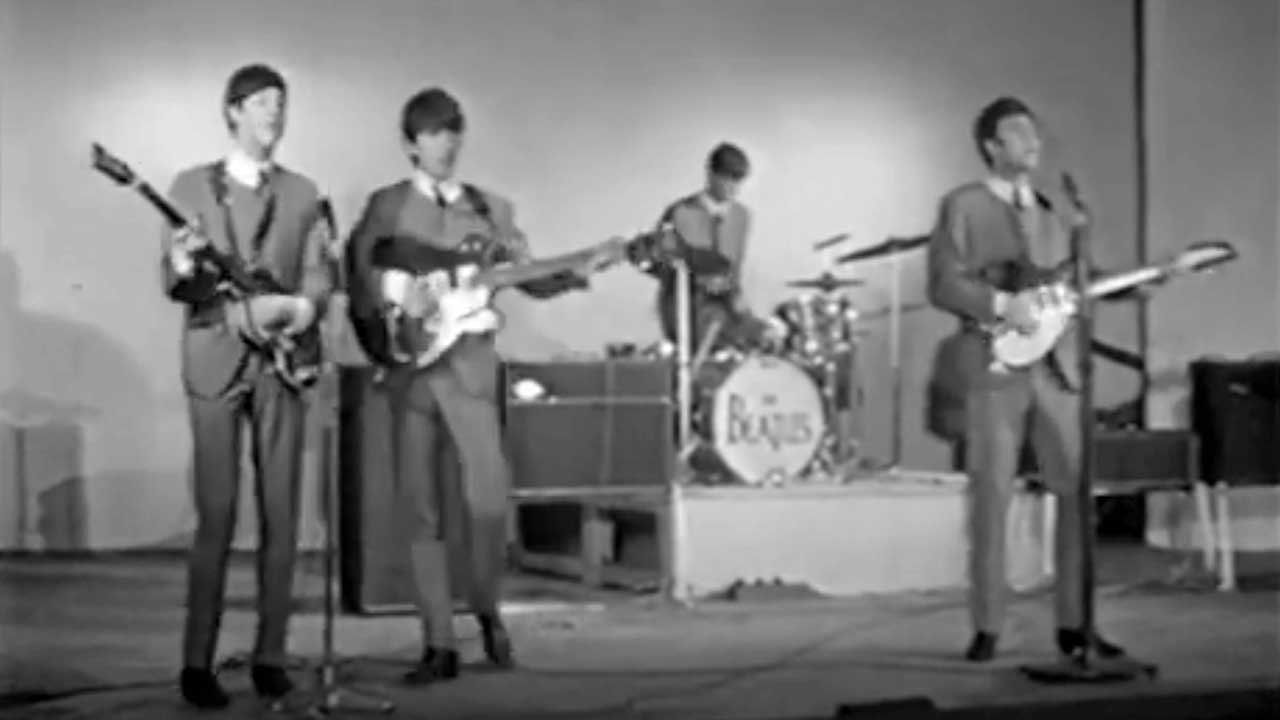
The Beatles' appearance on the Ed Sullivan show in February 1964 may have brought Beatlemania to North America and inspired a generation of musicians to try their hand at rock'n'roll, but it wasn't the first time the quartet appeared on American TV.
Three months earlier, on the November 18, 1963 edition of the Huntley-Brinkley Report, NBC News' correspondent Edwin Newman anchored a segment which gave US audiences their first taste of the excitement surrounding The Beatles. The broadcast included concert footage filmed at a show at the Winter Gardens in Bournemouth two days earlier, when three American networks – NBC, CBS and ABC – had been given permission to film.
There's no surviving footage from this broadcast – which Newman closed with the sneering comment, "Robert Percival, an artist, proposes to capture the Mersey Sound on canvas. Percival, mercifully, is deaf" – but viewers at home got further chances to acquaint themselves with the band who would change the world. Both NBC and CBS would run news bulletins that took a similar tone (NBC reported that the band made "non-music"), while ABC wouldn't use their footage at all.
On January 3, the tone changed. The show in question was The Jack Paar Program, which had debuted on NBC in 1962. Paar – who had previously hosted The Tonight Show – pointed out that he'd never featured a rock'n'roll act on the show before, but that he was interested in the band as a "sociological phenomenon".
"They're from the toughest part of England. It's Merseyside, near Liverpool, in the dock area," reported Paar. "It's a very tough area where these four nice kids come from. They're kinda witty. Someone asked, 'What's so exciting about living on the docks at Liverpool?', and they said, 'Just staying alive!'"
Paar would go on to show a clip of some fan hysteria, as well as some of the Bournemouth concert. And while he later suggested that he included the footage on the show because he "thought it was funny", the broadcaster had a reputation for talent spotting, and it's clear he knew that something was happening.
"It's nice to know that England has risen to our [American] cultural level," said Parr, as he brought the segment to a close. A month later, on the Sullivan Show, The Beatles would confirm it beyond any doubt.







